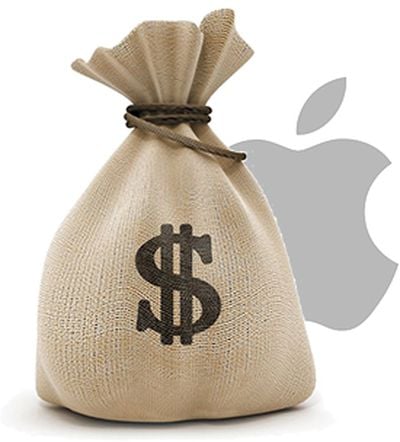 The European Commission is poised to hand down an adverse ruling against Apple next week following a three-year inquiry into the company's tax arrangements in Ireland, according to Financial Times.
The European Commission is poised to hand down an adverse ruling against Apple next week following a three-year inquiry into the company's tax arrangements in Ireland, according to Financial Times.
Expectation of an adverse ruling gathered pace this week after the US Treasury issued a stinging attack on the commission’s investigation, saying the EU executive was becoming a “supranational tax authority” that threatened international agreements on tax reform.
The Brussels-based body, led by competition commissioner Margrethe Vestager, has been investigating whether Apple's alleged "sweetheart deal" with Ireland constitutes illegal state aid, which it determined based on its preliminary findings in 2014.
The commission has accused Apple of sheltering tens of billions of dollars by transferring revenue to multiple subsidiaries in Ireland, where it pays a significantly lower tax rate of around 2%, compared to the country's headline corporate tax rate of 12.5%.
An adverse ruling could result in Apple owing up to $21.2 billion in back taxes, although a previous study placed the figure around $8 billion, and some analysts believe the amount could be as low as $1 billion.
Apple is one of several large corporations accused of tax avoidance in Europe over the past three years, joining the likes of Starbucks, Fiat Chrysler, Amazon, Google, IKEA, and McDonald's. Starbucks in particular is currently appealing its case in Netherlands, where it was ordered to pay as much as 30 million euros in back taxes.
Apple CEO Tim Cook, who has insisted that his company fully complies with international tax law, said last month that it would appeal any unfavorable ruling in European courts. Apple has also said it is the largest taxpayer in the world.
Earlier this week, the U.S. Treasury department warned that an adverse ruling against Apple could "set an undesirable precedent." It also said the European Commission is becoming a "supranational tax authority," going beyond acceptable enforcement of competition and state aid law.
Note: Due to the political nature of the discussion regarding this topic, the discussion thread is located in our Politics, Religion, Social Issues forum. All forum members and site visitors are welcome to read and follow the thread, but posting is limited to forum members with at least 100 posts.






















Top Rated Comments
Apple books sales of its iPhones, computers software etc that is sold in these countries in Ireland. They are not the only ones doing it Amazon, Starbucks etc. are all up to the same game and they are all going to have to pay eventually. Ireland facilitates this because this brings jobs to Ireland but it is a Tax fraud pure and simple.
Apple chose to set up a structure that is dishonest and illegal. There is a separate issue that you may be confusing with this in that they do not repatriate profits to the US but keep them overseas thereby avoiding US corporate tax.
Ireland is a tiny market for Apple in Europe. The majority of their sales are in the big economies like Germany, France the UK, italy etc. By booking 100 percent of the sales in Ireland they make zero or little profit in these countries by diverting it to Ireland and paying 2 percent tax.
Apple is just greedy if they paid the correct tax due in every European country they would not have as many Billions sheltered overseas and the concerned countries would get more tax to build the roads and the hospitals and the rest of the infrastructure that the apple employees need and use every day.
I hope that the commission comes down hard on Ireland and Apple. These forms of illegal corporate handouts are utter disgraceful.
Could you argue it's against the spirit of the law? Probably. But that doesn't stand up. Who would pay more than they have to, if it's legal at the same time?
If there's a legal tax loophole to stop paying as much, you're damn right you'd take it. Every company does and every person does. It's within the letter of the law. Apple are being targeted because they're ludicrously rich, and that's a slice of Apple pie people are happy to dig into.
Want to stop this kind of thing? Then change the tax rules for everybody, to avoid these sort of loopholes. As the old mantra goes: don't hate the player, hate the game.